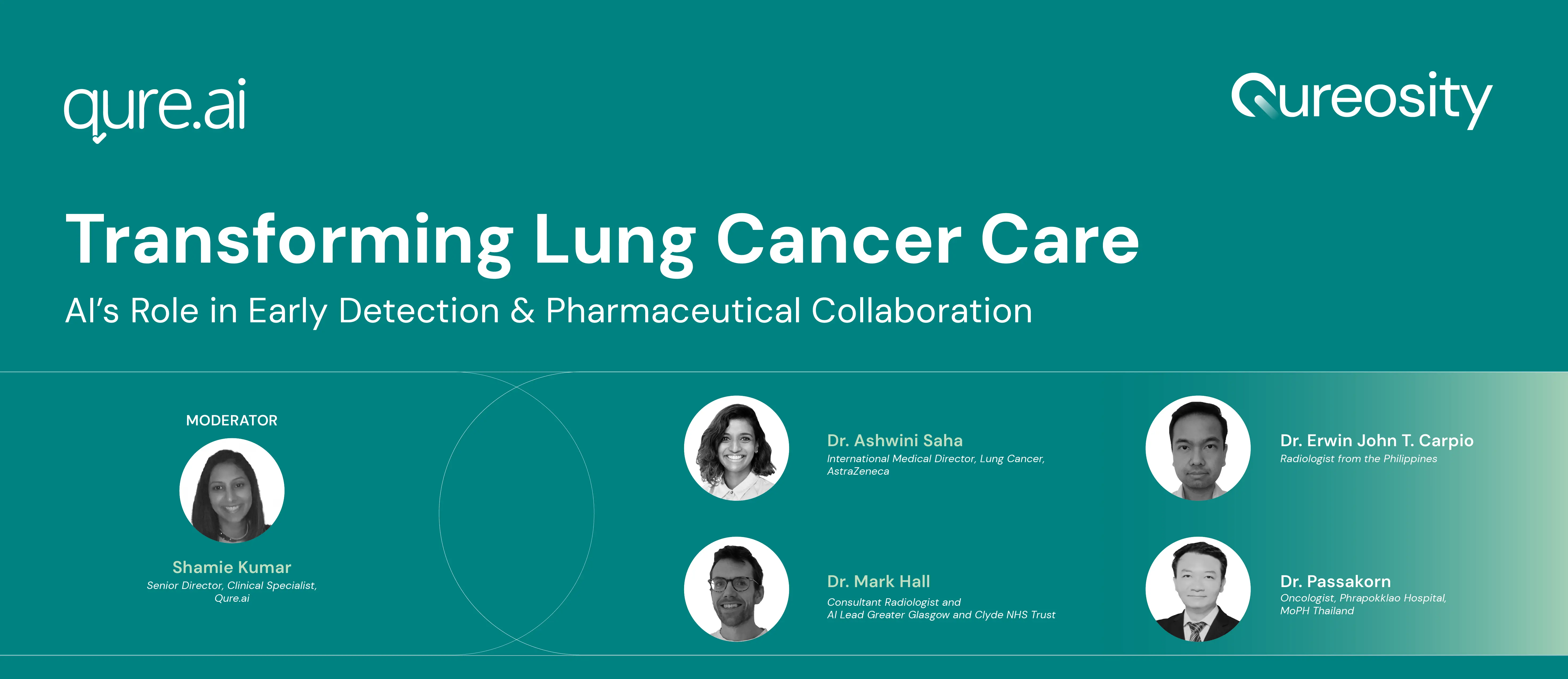The webinar “Transforming Lung Cancer Care: AI’s Role in Early Detection and Pharmaceutical Collaboration” featured discussions on integrating Artificial Intelligence (AI) into lung cancer diagnosis and treatment across various global healthcare settings.

Back
Moderated by Qure.ai’s Shamie Kumar, Senior Director, Clinical Specialist and a Diagnostic Radiographer, the panel included experts from different regions including the Philippines, Thailand, Scotland, and Malaysia, who shared insights on the challenges faced in lung cancer diagnosis, particularly the lack of resources and late-stage detection prevalent in many countries.
Key Points:
1. Global Challenges and AI Integration:
- Dr. Erwin Carpio highlighted the Philippines’ struggle with limited diagnostics and expertise, emphasizing the country’s high lung cancer rates among men.
- Dr. Mark Hall discussed Scotland’s national efforts to improve diagnosis timelines through the National Optimal Lung Cancer Pathway, aiming for diagnosis and treatment plans within 28 days from initial GP visit.
2. AI’s Impact on Early Detection:
- Dr. Passakorn outlined Thailand’s use of AI in lung cancer screening, enhancing early detection which significantly improves patient outcomes and reduces treatment costs for early-stage cancers compared to late-stage treatments.
- Dr. Ashwini Saha from AstraZeneca discussed the pharmaceutical perspective, mentioning strategic partnerships to integrate AI into lung cancer pathways to accelerate early detection and treatment across diverse regions.
3. Adoption and Integration Challenges:
- Dr. Mark Hall and Dr. Erwin shared their experiences with AI integration, highlighting the importance of aligning AI tools with specific healthcare needs and ensuring the technology adapts to local patient demographics.
- Both stressed the importance of policy and proper implementation strategies to ensure AI tools are effectively integrated and accepted within the medical community.
4. Future Prospects and Pharmaceutical Role:
- AstraZeneca aims to utilize AI to screen millions for lung cancer risk, emphasizing the potential of AI to reshape early cancer detection and treatment practices globally.
- The discussion also touched on the importance of comprehensive pathways that not only integrate AI for detection but also ensure subsequent medical procedures and treatments are streamlined and efficient.
Conclusion:
The webinar elucidated AI’s transformative role in lung cancer care, underscoring its potential to significantly improve early detection and collaboration across healthcare systems and pharmaceutical industries. It highlighted ongoing challenges in adoption and integration, suggesting a focus on tailored solutions and strategic partnerships to enhance patient outcomes worldwide.